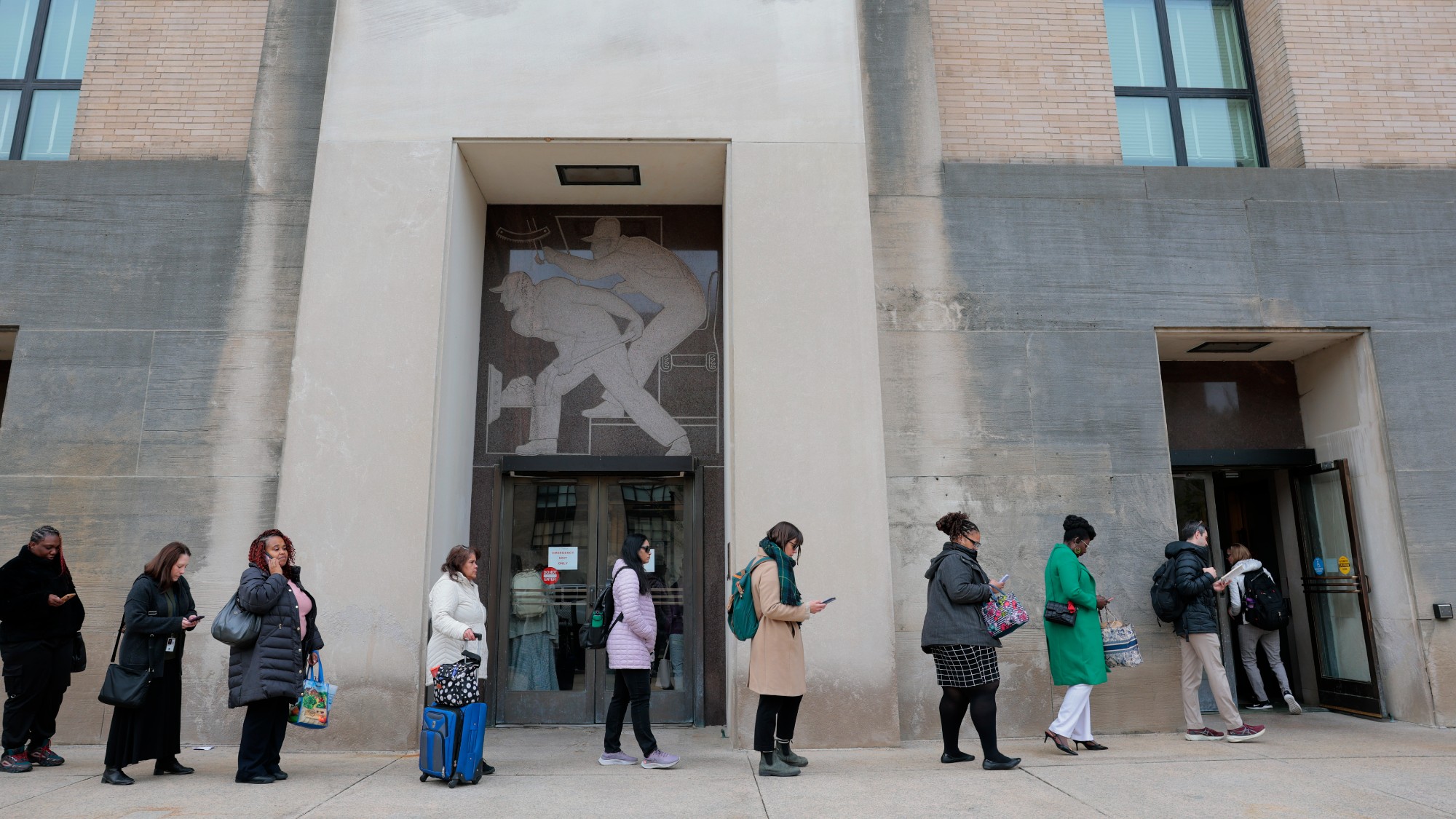What does Health and Human Services do?
The agency's cuts will 'dramatically alter' public health in America


A free daily email with the biggest news stories of the day – and the best features from TheWeek.com
You are now subscribed
Your newsletter sign-up was successful
The U.S. Department of Health and Human Services (HHS) is undergoing a dramatic restructuring under Secretary Robert F. Kennedy Jr., with massive cuts to staffing and programs that could alter the face of health and health care in America.
HHS is laying off 10,000 workers and will "shut down entire agencies" as part of the changes, said The Associated Press. That is in addition to 10,000 who have already left voluntarily since the beginning of the Trump Administration. The cuts will affect workers who oversee funding for "addiction services and community health centers across the country." The reductions, Kennedy said, will bring a "sprawling" bureaucracy under control. "We're going to do more with less," he said in an announcement video.
What does HHS do?
A lot. The department's roots "stretch back to 1798," the National Library of Medicine said in a 2009 history. Congress that year created a "network of federal hospitals to care for merchant seamen." After that, the federal government's health care services expanded "piece by piece" — including the forerunners of today's Food and Drug Administration and Centers for Disease Control and Prevention — before Congress created the Department of Health, Education and Welfare in 1953. The name changed in 1979 when the Department of Education was spun off into its own separate agency.
The Week
Escape your echo chamber. Get the facts behind the news, plus analysis from multiple perspectives.

Sign up for The Week's Free Newsletters
From our morning news briefing to a weekly Good News Newsletter, get the best of The Week delivered directly to your inbox.
From our morning news briefing to a weekly Good News Newsletter, get the best of The Week delivered directly to your inbox.
HHS has encompassed a "broad range of programs, services and initiatives" aimed at improving public health, said The University of Arizona in an overview. Those programs still include the FDA and CDC, but also Medicare and Medicaid. The "human services" include Temporary Assistance for Needy Families payments to low-income families, the Supplemental Nutrition Assistance Program popularly known as "food stamps," and other programs that oversee Head Start, foster care and adoption services. HHS had a budget of roughly $1.7 trillion in 2024, about a quarter of all federal spending.
Who is affected?
There are few Americans whose health care is not touched by HHS. The department's biggest division is the Centers for Medicare and Medicaid Services, whose programs "provide health coverage access to 170 million Americans — more than half the population," said KFF. HHS is "heavily involved in the federal regulation of private health insurance" and employer-sponsored insurance that covers another 150 million people.
What will the cuts change?
The "deep and wide-ranging" cuts hit a range of programs, said NBC News. The affected programs include those involving "tackling HIV, improving minority health and preventing injury," as well as offices focused on the "approval of new drugs, providing health insurance and responding to infectious disease outbreaks." Some divisions were entirely eliminated, "including several focused on the safety of mining workers."
The reorganization of HHS will "dramatically alter U.S. health policy and research," Texas A&M's Simon F. Haeder said at The Conversation. Kennedy has said the cuts will not affect Americans, but that seems "unlikely" given the "magnitude of the cuts." The workforce reductions will "inevitably lead to more systemic disruptions and delays and denials" of benefits and assistance that Americans receive from the government. That means Americans will receive "fewer benefits, services and protections" than what they "have become accustomed to in modern times."
A free daily email with the biggest news stories of the day – and the best features from TheWeek.com
Joel Mathis is a writer with 30 years of newspaper and online journalism experience. His work also regularly appears in National Geographic and The Kansas City Star. His awards include best online commentary at the Online News Association and (twice) at the City and Regional Magazine Association.
-
 Colbert, CBS spar over FCC and Talarico interview
Colbert, CBS spar over FCC and Talarico interviewSpeed Read The late night host said CBS pulled his interview with Democratic Texas state representative James Talarico over new FCC rules about political interviews
-
 The Week contest: AI bellyaching
The Week contest: AI bellyachingPuzzles and Quizzes
-
 Political cartoons for February 18
Political cartoons for February 18Cartoons Wednesday’s political cartoons include the DOW, human replacement, and more
-
 Scientists are worried about amoebas
Scientists are worried about amoebasUnder the radar Small and very mighty
-
 Metal-based compounds may be the future of antibiotics
Metal-based compounds may be the future of antibioticsUnder the radar Robots can help develop them
-
 A Nipah virus outbreak in India has brought back Covid-era surveillance
A Nipah virus outbreak in India has brought back Covid-era surveillanceUnder the radar The disease can spread through animals and humans
-
 Deaths of children under 5 have gone up for the first time this century
Deaths of children under 5 have gone up for the first time this centuryUnder the radar Poor funding is the culprit
-
 A fentanyl vaccine may be on the horizon
A fentanyl vaccine may be on the horizonUnder the radar Taking a serious jab at the opioid epidemic
-
 Health: Will Kennedy dismantle U.S. immunization policy?
Health: Will Kennedy dismantle U.S. immunization policy?Feature ‘America’s vaccine playbook is being rewritten by people who don’t believe in them’
-
 More adults are dying before the age of 65
More adults are dying before the age of 65Under the radar The phenomenon is more pronounced in Black and low-income populations
-
 Ultra-processed America
Ultra-processed AmericaFeature Highly processed foods make up most of our diet. Is that so bad?
